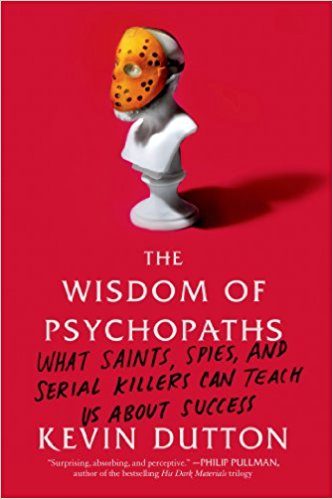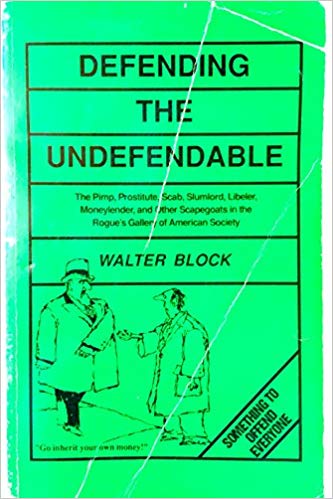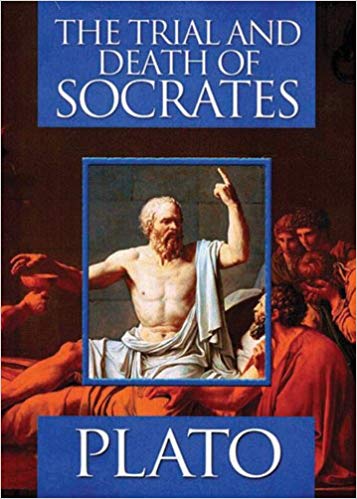|
In addition to reading books, I also listen to podcasts. Recently, I’ve completed all current episodes of the massive British History Podcast: https://www.thebritishhistorypodcast.com/
But I don’t review podcasts, I review books. So after finishing the podcast, I decided to read three of the Middle Ages texts mentioned by the host: History of the Ruin of Briton, by Gildas, History of the Britons, by Nennius, and The Life of King Alfred the Great by Asser. I recommend listening to the podcast, then reading these three books. You will gain a very complete picture of the early Middle Ages in Britain, just as I did. On the Ruin of Britain by Gildas Published in the 6th Century AD 9 Pages Thibault’s Score: 4/5 You can find the complete text of the book here for free: http://www.gutenberg.org/cache/epub/1949/pg1949-images.html Gildas is a very readable author (by ancient standards). His text helped give me a clear picture of what kind of knowledge someone inhabiting sub-roman Britain would have of the Roman Empire. It also is one of history’s best remaining sources of history for this period of Britain. History of the Britons by Nennius Published in 828 AD 48 Pages Thibault’s Score: 4/5 Free audiobook download: https://librivox.org/history-of-the-britons-historia-brittonum-by-nennius/ This book can be seen as an attempt by a later author to copy Gildas and expand on his work. Some segments of the text are clearly paraphrased from Gildas, however this book continues where Gildas left off. This book also gives an account of King Arthur, who would have, around the time when Gildas lived, have attempted to fend off the Anglo Saxons. It is interesting to note the degree by which Romans has become a legendary figures by the time of Nennius. The Life of Alfred the Great by Asser 908 AD 50 Pages Thibault’s Score: 3/5 Free audiobook download: https://librivox.org/alfred-the-great-by-asser/ I found Asser, unlike Nennius and Gildas, to be very difficult to follow. The many names, places, and events I was unfamiliar with confused me. Furthermore, the year by year nature of the events made tying cause and effect very difficult for me. This may have entirely been because I listened to the entire audiobook immediately after I finished Nennius and was getting tired.
2 Comments
Cop Under Fire: Moving Beyond Hashtags of Race, Crime, and Politics for a Better America
by Sheriff David A. Clarke Jr. Published in February 2017 272 Pages Thibault’s Score: 3/5 This book is written for conservatives with a circle jerk mindset who are excited at the idea that somewhere there is an African American law enforcement officer who agrees with them on everything. People with less plebeian tastes will likely prefer many of the other books that I have reviewed here on this blog. The book is ghostwritten by Nancy French. Nancy French (who has a website you can find here: https://www.nancyfrench.com/) has ghostwriter books for all sorts of celebrities such as Sarah and Bristol Palin, some Christian guy who appeared on reality TV show The Bachelor, and Stacey Dash (who is an actress on CSI who gave a speech at CPAC in 2016). Cop Under Fire also hass a foreword written by Fox news daytime host Sean Hannity, who is the most generic milk toast conservative pundit imaginable. Finally, the author is Sheriff Clarke, a former Sheriff in Milwaukee who gave a speech at the RNC in support of Donald Trump. Clarke starts by telling the reader about his early childhood experiences, and gives many analogies about his hardass Vietnam veteran father. Clarke credits his father with preventing him, despite living in a poor neighborhood, from turning to a life of crime and instead graduating college. Over time, Clarke decided to pursue a career in law enforcement, and slowly rose up the ranks. His experiences as a police officer gave him a strong law and order mentality, and turned him into a reluctant republican. Eventually, he came to control all of the law enforcement officers in Milwaukee County. During his time at the helm of the force, several racially charged protest movements erupted, criticizing the force’s lack of attention and perceived brutality towards minorities. This allowed Clarke to assert his leadership skills, and help the police force deal with the PR crisis. He never backed down, and always protected his officers. He also relays his tough attitude towards inmates and prison reform. Under his tenure, he streamlined the local prison. He also began improving inmate discipline by withdrawing more appealing food as punishment, and instead forcing inmates to eat nutraloaf. He also made controversial pro gun ownership educational videos where he urged his constituents to buy guns. The rest of the book details Clarke’s political positions on a wide range of loosely law enforcement issues ranging from single motherhood, to the welfare state, to the death penalty, and several other issues. As I am writing this review, only days after I finished the book, I have already forgotten the specifics because of the banality of the presented arguments. I was both pleasantly surprised and thoroughly disappointed. The quality of the writing was surprising considering the initial endorsement by Sean Hannity and the ghostwriting by Nancy French. However, the content was disappointing. I was hoping there would be a lot more specific examples of cases where Sheriff Clarke relayed his experiences as a police officer. Instead, I found a lot of very basic arguments which could have been made much better by the CATO Institute. The Wisdom of Psychopaths
by Kevin Dutton Published in September 2012 288 Pages Thibault’s Score: 4/5 Kevin Dutton does a great job at explaining what a psychopath is and outlining the many circumstances where psychopaths outperform their neurotypical peers. The brains of psychopaths are structured very differently than the brains of other people. They do not feel the same emotions that neurotypicals feel, and the emotions that they do feel are highly attenuated. This is both a blessing and a handicap. Psychopaths struggle with finding a sense of morality, and can, if pushed, turn to violence and criminality. This is why many serial killers are psychopaths. Just because nearly all of the most violent murders and rapists are psychopaths doesn’t mean that the majority of psychopaths are dangerous. Most psychopaths live completely normal and productive lives. Psychopaths tend to cluster towards society’s extremes: they are both the most dangerous and poor people, along with the most helpful and productive. The world’s top CEOs, surgeons, lawyers, soldiers, and law enforcement officers tend to score high on many tests indicating sociopathy. Their jobs require nerves of steel and a cool unflinching focus. A lot surprised me about this book. Major religious figures, such as saints, often display sociopathic tendencies. The most focused buddhist monks’ brains look like he brains of psychopaths on MRI scans - they may have, through meditation, turned themselves into benevolent psychopaths. There is much that we can learn from psychopaths, and Kevin Dutton does a fantastic job of showing what and how we can learn from these incredible individuals. This is an absolutely fantastic book. It is eye opening, and a must read, especially for people who have experienced anxiety or trouble with emotional control. Defending the Undefendable
by Walter Block Published in March 1976 256 Pages Thibault’s Score: 4/5 I read this book many years ago in high school, and found it to be very interesting. I reread it with my girlfriend while listening to the audiobook on a road trip, and we found it to be educational and amusing. I have had the pleasure of meeting Dr. Walter Block on several occasions, and have shared many great experiences with him. Walter Block systematically defends a wide variety of professions commonly looked down upon in modern society from heroin dealers to prostitutes to capitalist pigs to crooked cops. He does a great job at systematically analyzing the following professions from a libertarian perspective with an attention to detail characteristic of autists. Each chapter covers a profession, and can be read without reference to any other chapters in this book. Some of Walter Block’s defenses annoyed me a little bit because I thought he was ignoring key very convincing arguments. For example, on the chapters defending drug dealers prostitutes, he doesn’t include a preface clarifying that its possible to judge prostitution as immoral without wanting it to be illegal. For example, I personally find heroin dealers, heroin users, prostitutes, and the customers of prostitutes to be morally repugnant and socially undesirable. Nevertheless, I acknowledge that its best for me personally and society as a whole if these activities are legal, and kept behind closed doors out of my sight. There are no laws against cheating on one’s spouse, nor would it be desirable to enact laws against cheating on one’s spouse, however that behavior is rightfully viewed as socially unacceptable. There are ways of discouraging activities through non state means. The author, Walter Block, doesn’t believe in intellectual property. As a result, readers can freely copy paste whatever they like out of this book and is it for their own ends. This makes Defending the Undefendable excellent for sending isolated chapters to convince family and friends about specific topics. For example, a good friend of mine thinks that drugs should be illegal, so I found the free version published online by the Mises Institute, and sent them the chapter in question. Link to free online version which includes both the audiobook and full text: https://mises.org/library/defending-undefendable I recommend this book to all highly argumentative libertarians. One last side note: even though the book is available for free, I have heard that Dr. Walter Block is in a financially precarious situation. If you enjoy the book, please consider buying the audiobook on Audible of buying a physical copy on Amazon to support Dr. Block. Amazon: https://www.amazon.com/Defending-Undefendable-Prostitute-Moneylender-Scapegoats/dp/1479323985 Audible: https://www.audible.com/pd/Nonfiction/Defending-the-Undefendable-Audiobook/B005V1UV70 The Trial and Death of Socrates
by Plato Published between 399 BC and 348 BC 128 Pages Thibault’s Score: 4/5 The Trial and Death of Socrates is a collection of dialogs allegedly written by Plato recounting the moments before Socrates trial, the key points Socrates made during his trial, the encounters he had with his followers in prison while awaiting his execution, and his final philosophical thoughts, hours before his death. Like nearly all ancient texts, it appears to have been altered over time, and written by many authors. The writing style changes abruptly. Some sections are written like a play, with the names of the speakers followed by their dialogs. Other sections are written with third person narrative accounts. Yet other sections are out of context quotes from Socrates. Many modern historians believe that Plato and Socrates are fictional characters, and the events described should not be taken literally. Instead of reading this text as a historical narrative, it is more important to understand the greater truths being presented by Plato and Socrates. The arguments made by Socrates and his opponents are timeless and universally applicable. They deeply explore the questions of freedom of speech, mortality, and the obligations one has with his community. Socrates, despite being an old and haggard man, displays an incredible amount of heroism. He boldly stares down his accusers, and refuses to back down to save his own life. Instead, he chooses to defend reason with his own life. When his dedicated disciples concoct a plan to bribe the guards and sneak him out of prison, he refuses, and argues that remaining in good standing with the law is the morally correct and reputable thing to do. I really enjoyed reading the Trial and Death of Socrates, and left feeling both culturally enriched and inspired by Socrate’s humble act of bravery. |
Thibault SerletMost of my articles are book reviews, but I also write about many other topics. Archives
December 2023
Categories |





 RSS Feed
RSS Feed